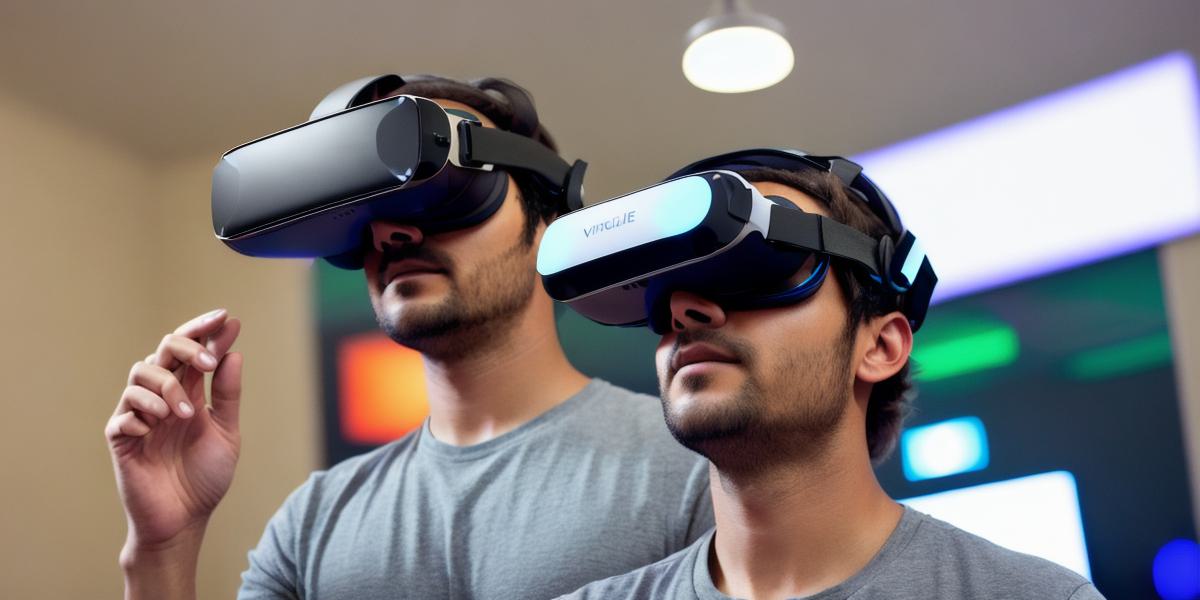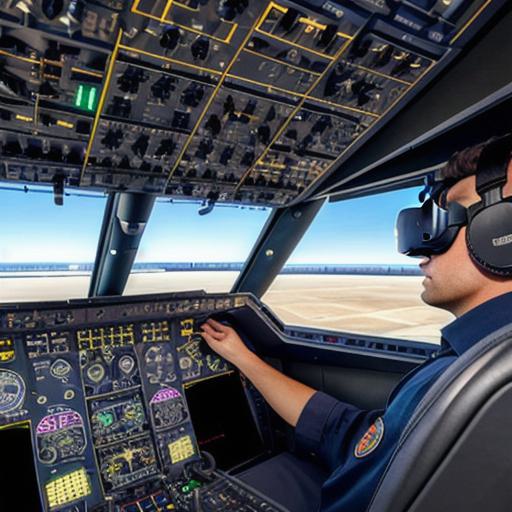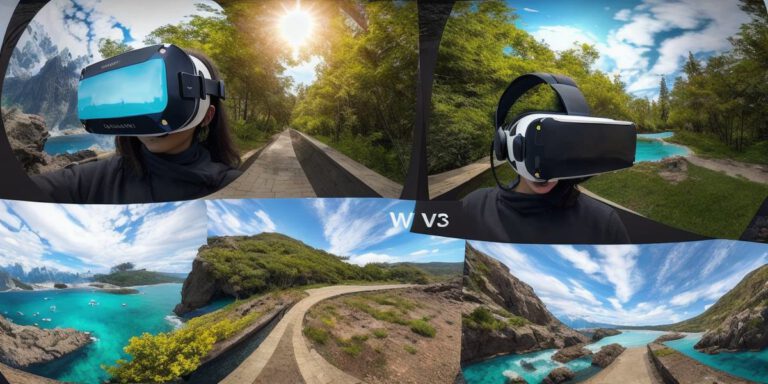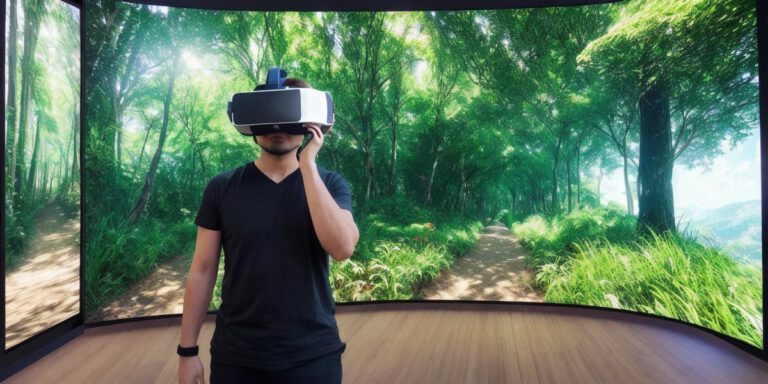Virtual Reality: A Revolutionary Technology with Pros and Cons

Virtual reality (VR) is a technology that has been around for several years now. It involves immersing oneself in a simulated environment that feels like the real world. VR is becoming increasingly popular, with applications ranging from gaming to education and healthcare. In this article, we will explore both the pros and cons of virtual reality, as well as its impact on society.
Pros of Virtual Reality
Training and Simulation
Virtual reality can be used for training and simulation purposes in various industries. For example, pilots can use VR to simulate flight scenarios, enabling them to practice their skills without the risk of crashing an actual plane. Similarly, surgeons can use VR to practice complex procedures, reducing the risk of mistakes that could harm patients.
Gaming and Entertainment
Virtual reality has revolutionized the gaming industry, allowing players to experience immersive, interactive games in a way that was previously impossible. VR headsets and controllers enable players to move around freely within the game world, making it feel like they are actually part of the action.
Education and Learning
Virtual reality can be used as an effective tool for education and learning. Students can use VR to explore historical sites or scientific concepts in a way that is more engaging than traditional classroom methods. This can lead to better retention of information and improved overall understanding of the material.
Cons of Virtual Reality
Health Concerns

There are concerns about the potential health effects of virtual reality, particularly with regards to motion sickness and eye strain. Prolonged use of VR headsets can cause discomfort and fatigue, as well as headaches and nausea. Additionally, some users may experience vertigo or other balance problems when using VR.
Cost and Accessibility
Virtual reality technology can be expensive, with high-end VR headsets and controllers costing thousands of dollars. This can limit access to VR for many people, particularly those on a tight budget. Additionally, not all devices or platforms are compatible with each other, which can make it difficult to share VR content across different platforms.
Addiction and Isolation
There is concern that virtual reality could lead to addiction and isolation for some users. Spending long hours in a simulated environment may detract from real-life social interactions, leading to feelings of loneliness and disconnection. Additionally, some users may become so engrossed in the virtual world that they forget about their real-life responsibilities and obligations.
Impact on Society
Virtual reality has the potential to transform many aspects of society, from gaming and entertainment to education and healthcare. However, it also raises important ethical and social questions about the role of technology in our lives and the impact it may have on our well-being and relationships.
One potential benefit of virtual reality is that it could help to reduce the need for travel and transportation, particularly in industries such as tourism and entertainment. This could lead to a reduction in greenhouse gas emissions and other environmental impacts associated with travel.
However, there are also concerns about the potential impact of virtual reality on our social lives and relationships. As we become increasingly reliant on technology for communication and interaction, we may lose some of the human connections that are so important for our well-being.
Conclusion
Virtual reality is a rapidly evolving technology with both pros and cons. While it has the potential to revolutionize many aspects of our lives,








